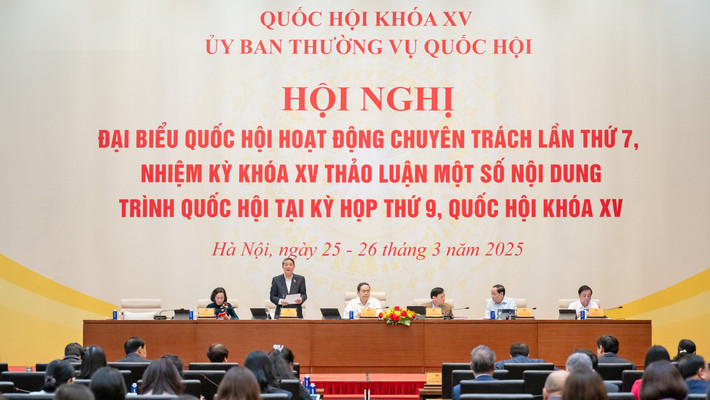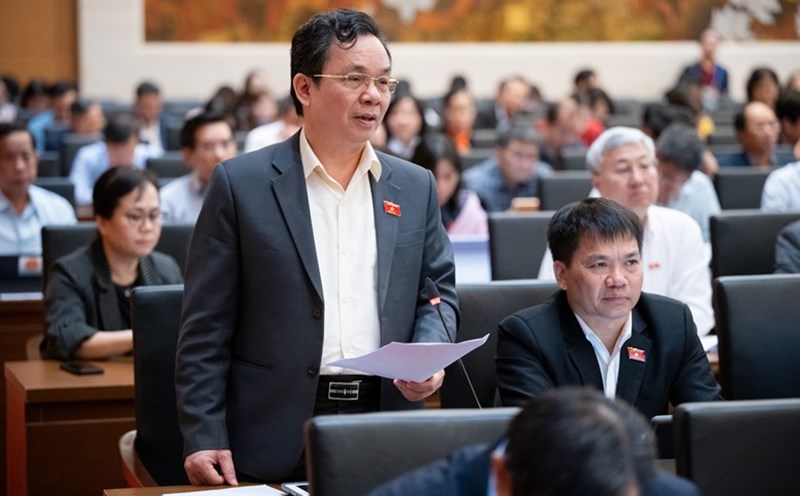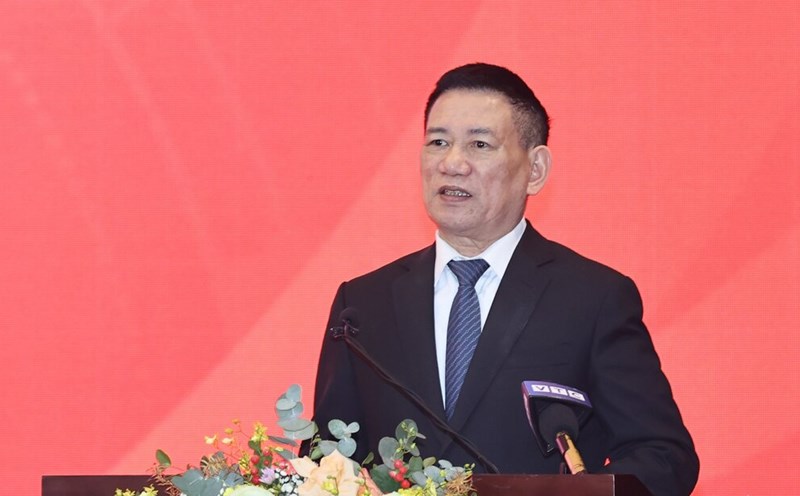On the morning of March 26, the National Assembly delegation conference held a meeting to give opinions on the Draft Law on Special Consumption Tax (amended).
Reporting on some basic contents in explaining, accepting and revising the draft law, the Standing Committee of the Economic and Financial Committee said that regarding tax rates for alcohol and beer, many opinions suggested continuing to apply the 65% tax rate for beer for about 2 years and increasing the tax from 2027 or 2028 to 70%, the roadmap for an increase of 5%/year.
Some opinions suggested unifying a tax rate for alcohol, not divided by alcohol concentration and applying the same tax rate as for beer.
The current law has stipulated a high tax rate for beer to orient, regulate production, limit consumption, reduce harm to public health and many consequences for the socio-economy.
Therefore, in order to strongly impact the reduction of consumption and overcome the abuse of alcohol and beer, the draft law is to be accepted and revised in the direction of regulating the increase in special consumption tax (SCT) on alcohol and beer as option 2.
However, National Assembly deputies are having many different opinions on tax rates, tax rates, and roadmaps for these products.
Some opinions from manufacturing and business associations believe that applying special consumption tax on cigarettes, alcohol and beer as option 2 will greatly affect the production and trading of these goods as well as supporting industries, tourism and raw material areas, thereby affecting the GDP growth target set.
Therefore, it is recommended to consider regulating option 1 with a slower tax increase roadmap to avoid causing difficulties for businesses, ensuring the economic growth target decided by the National Assembly.

Speaking about this noi dung, National Assembly delegate Hoang Duc Thang (Quang Tri delegation) said that the increase in special consumption tax this time should take into account the difficult context of beverage manufacturing enterprises when experiencing the COVID-19 pandemic, other negative impacts, causing a large decrease in output, revenue, profit, and reducing taxation for localities.
Delegate Thang also said that according to the Government's proposal on proposed tax increase plans, prices will increase, consumers can find cheaper products, manual production, and smuggling. Therefore, it can cause tax losses, increasing health risks for consumers.
The tax increase can also affect employment, many other issues... Therefore, to harmonize the interests of the State, businesses, and consumers, delegate Thang proposed to implement option 1 with a roadmap to increase special consumption tax more slowly for beer and alcohol.
This is to create conditions for businesses and the market to have time to adapt, towards the goal of harmony and social security.
Meanwhile, National Assembly delegate Hoang Van Cuong (Hanoi Delegation) said that he expressed his interest in how to tax it to be effective and reduce consumption.
Delegate Cuong added that many delegates talked about the issue of beer tax. Accordingly, beer tax also affects service consumption and if service consumption decreases, it will affect national income.
Currently, we are applying a policy to encourage service consumption by reducing VAT in 2025. So in 2026, if we increase beer tax, we will go back to the VAT reduction policy" - delegate Cuong said and said that he agreed to increase beer tax but the application time started in 2027 instead of 2026.











